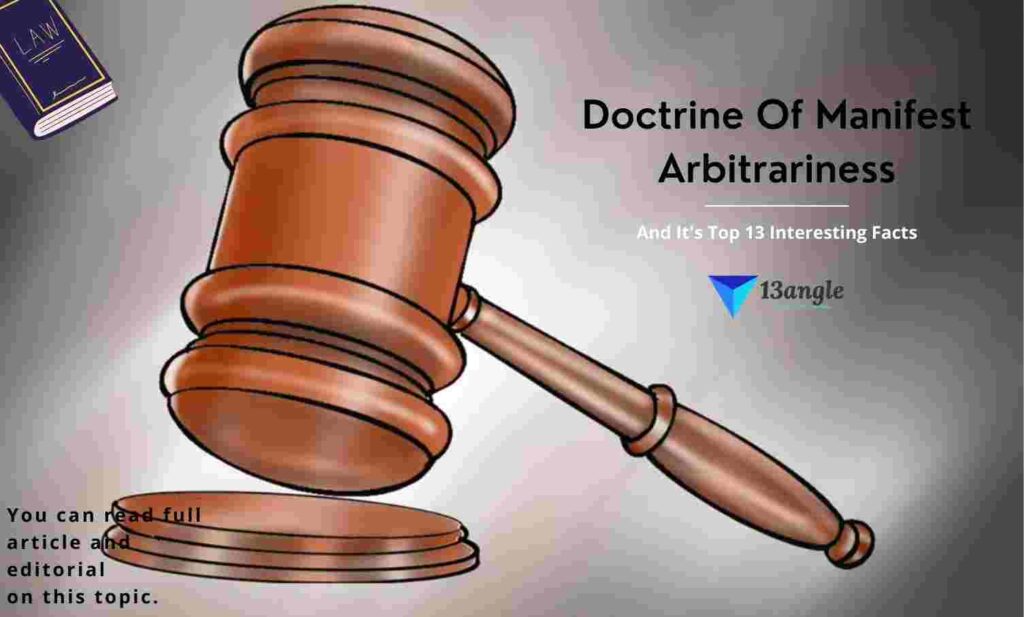Equality, from a positivistic perspective, is diametrically opposed to arbitrariness. In truth, equality and arbitrariness are mortal rivals; one belongs to the rule of law in a republic, while the other to an absolute monarch’s whims and caprices. When an act is arbitrary, it implies that it is unequal both in terms of political logic and in terms of constitutional law, and so violates Article 14.
Arbitrariness is opposed to equality. Article 14 prohibits the government from acting arbitrarily and assures that everyone is treated equally. The notion of reasonableness, which is a fundamental part of equality or non-arbitrariness in both legal and philosophical terms, pervades Article 14 like a brooding omnipresence, and the method proposed by Article 21 must pass the reasonableness test in order to comply with Article 14. It must be “just, reasonable, and fair,” not arbitrary, whimsical, or oppressive; otherwise, it isn’t a method at all, and Article 21 isn’t met.
It’s just a legal method for deciding whether a legislative or administrative action is unreasonable, and thus amounts to a denial of equality. Wherever there is arbitrariness in State activity, whether it be by the legislature, the administration, or a “authority” under Article 12, Article 14 instantly springs into action and overturns it. In reality, the principle of reasonableness and non-arbitrariness penetrates the entire constitutional framework and is a golden thread that runs through it all.
As has been said in previous decisions of this Court, arbitrary legislation is a feature of unreasonableness in Articles 19(2)-(6), hence there is no reason why arbitrariness cannot be utilized in an aforementioned manner to strike down legislation under Article 14 as well.”
Only constitutionally recognised reasons can be used to challenge legislation approved by Parliament. The most common grounds for challenging a law are whether the legislature has legislative authority or if the law is in violation of the Constitution’s provisions. If any of the law’s provisions infringe basic rights or other articles of the Constitution, it might be a viable reason to have the legislation overturned through judicial review. A law might also be challenged as irrational if it breaches the ideals of equality enshrined in our Constitution or limits basic rights in violation of Article 19 of the Constitution.
A law cannot be challenged only on the basis of its unreasonableness since it is not a foundation in and of itself. The constitutional legitimacy of a constitutional amendment and the constitutional legality of plenary legislation must be determined solely on the basis of constitutional law.






